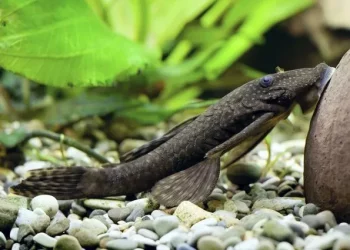Betta fish, scientifically known as Betta splendens, are among the most popular freshwater aquarium fish due to their vibrant colors, intricate fins, and engaging behaviors. Their unique personalities and ease of care have made them a favorite among novice and experienced aquarists alike. However, there are many misconceptions surrounding the care of bettas, particularly regarding their lighting needs. This article aims to explore the natural habitat of betta fish, their adaptations to light conditions, the impact of light on their health and behavior, and whether they can survive without light.
Understanding Betta Fish and Their Natural Habitat
Origin and Habitat
Betta fish are native to the shallow waters of Southeast Asia, primarily found in Thailand, Cambodia, Vietnam, and Laos. Their natural habitats include rice paddies, swamps, and slow-moving streams where the water is often murky and vegetation is abundant. These environments are characterized by varying light conditions, depending on the time of day and the presence of overhead foliage.
Natural Light Conditions
In the wild, bettas experience a cyclical pattern of light and darkness. During the day, sunlight penetrates the water, creating a bright environment that encourages feeding and social interactions. As night falls, light levels decrease significantly. Bettas are naturally adapted to these changes, exhibiting behaviors that correspond to the light conditions.
The Importance of Light for Betta Fish
Visual and Behavioral Cues
Light plays a crucial role in the overall well-being of betta fish. It serves as a cue for various behaviors, including:
Feeding: Betta fish are diurnal creatures, meaning they are active during the day. Natural light stimulates their hunting instincts, encouraging them to forage for food.
Breeding: Adequate lighting is essential during the breeding season. Male bettas display vibrant colors and engage in courtship behaviors, which are more pronounced in well-lit environments.
Social Interactions: Betta fish are territorial and use visual signals to establish dominance. Proper lighting enhances their ability to perceive these signals, reducing the likelihood of stress and aggression.
Health and Well-being
Light exposure is essential for several physiological processes in bettas, including:
Vitamin D Synthesis: Like many aquatic organisms, bettas benefit from UV exposure, which aids in the synthesis of vitamin D. This vitamin is crucial for maintaining healthy bones and preventing diseases like swim bladder disorder.
Circadian Rhythm Regulation: Betta fish, like most animals, have internal biological clocks that regulate their sleep-wake cycles. Consistent light-dark cycles help maintain their circadian rhythms, promoting overall health and well-being.
Can Betta Fish Survive Without Light?
Short-term Adaptations
While betta fish can technically survive without light for a short period, the long-term effects can be detrimental to their health. In the absence of light, bettas may exhibit certain adaptations:
Reduced Activity Levels: Betta fish are less active in darkness, which may lead to a decrease in metabolism and overall health.
Altered Feeding Patterns: Bettas rely on visual cues to find food. Without light, their ability to forage diminishes, leading to potential starvation.
Long-term Consequences
Extended periods without light can have severe consequences for betta fish:
Stress and Anxiety: Prolonged darkness can lead to increased stress levels, causing bettas to become lethargic or withdrawn. This stress can weaken their immune systems, making them more susceptible to diseases.
Color Deterioration: Betta fish are known for their vibrant colors, which may fade without adequate light exposure. This fading can impact their attractiveness and overall vitality.
Behavioral Changes: In the absence of light, bettas may become more aggressive or display unusual behaviors, such as hiding or excessive fin biting.
Best Practices for Lighting Betta Fish Aquariums
Choosing the Right Lighting
When setting up a betta fish aquarium, selecting appropriate lighting is crucial for their well-being. Here are some tips for choosing the right lighting:
Intensity: Betta fish thrive in moderate lighting conditions. Bright, intense light can create stress, while too little light can hinder their activity levels. A balance is essential to mimic their natural habitat.
Type of Light: LED lights are popular for aquariums due to their energy efficiency and long lifespan. They also produce less heat, reducing the risk of temperature fluctuations that can affect bettas.
Light Duration: Bettas benefit from a regular light cycle. Aim for 10 to 12 hours of light per day, followed by a period of darkness. This cycle helps regulate their circadian rhythms and promotes healthy behaviors.
Creating a Comfortable Environment
To enhance the lighting experience for betta fish, consider the following:
Plants and Hiding Spots: Incorporate live or artificial plants in the aquarium to create shaded areas where bettas can retreat if they feel stressed. This mimics their natural environment, providing them with a sense of security.
Avoid Glare: Position the aquarium in a location that minimizes glare from direct sunlight or artificial lights. Excessive glare can cause discomfort and disorientation for the fish.
The Role of Supplemental Lighting
Benefits of Supplemental Lighting
In some cases, supplemental lighting can enhance the overall aquarium environment. Consider the following benefits:
Plant Growth: If your aquarium includes live plants, adequate lighting is essential for photosynthesis. Healthy plants contribute to water quality and provide additional hiding spots for bettas.
Aesthetic Appeal: Good lighting can enhance the visual appeal of the aquarium, highlighting the colors of both the fish and the plants.
Types of Supplemental Lighting
When considering supplemental lighting options, here are some to explore:
Full Spectrum Lights: These lights provide a broad range of wavelengths, mimicking natural sunlight. They promote healthy plant growth and enhance the colors of the fish.
Moonlight LEDs: For nighttime viewing, moonlight LEDs can create a gentle glow in the aquarium without disturbing the fish’s sleep cycles. These lights simulate natural moonlight, allowing for nocturnal observations.
Monitoring Betta Fish Health in Different Lighting Conditions
Signs of Stress
It is essential to monitor betta fish for signs of stress related to lighting conditions. Some common indicators include:
Faded Colors: A decline in color vibrancy may signal inadequate lighting or stress.
Lethargy: If a betta appears less active than usual or spends excessive time hiding, it may be experiencing stress.
Aggression: Increased aggression towards tank mates can result from stress, leading to potential injuries.
Adjusting Lighting Based on Behavior
Pay attention to your betta’s behavior and adjust lighting accordingly. If signs of stress are observed, consider:
Reducing Light Intensity: Lowering the brightness or duration of light exposure can help alleviate stress.
Creating More Hiding Spots: Adding decorations or plants can provide additional cover, reducing anxiety.
Conclusion
In conclusion, while betta fish can survive without light for a limited time, their health and well-being depend significantly on appropriate lighting conditions. Understanding their natural habitat, the importance of light for their behavior and health, and implementing best practices for aquarium lighting will ensure that your bettas thrive. By providing a well-lit environment that mimics their natural habitat, you will not only enhance their quality of life but also enjoy the beauty and vibrant personalities of these remarkable fish.
Related Topics:


























